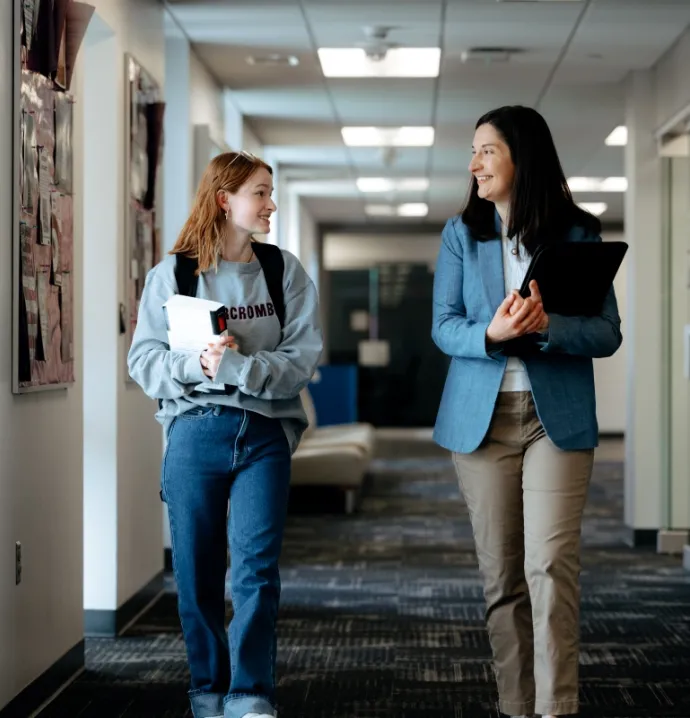Feeling stressed this election season?
Feeling stressed this election season?
2020 hasn’t been easy. A global pandemic, national reckoning on racial inequality and economic crisis have led up to a contentious election season. Psychology professor and department head Adam Butler and family services assistant professor Heather Kennedy are here to help with some ways to cope with stress and anxiety this election season.
A recent Harvard study found that heart attacks increased around the 2016 elections. What does stress do to the body and mind? What are some ways to avoid it?
Butler: Humans have a single-stress response system that evolved to protect us from acute threats to our well-being, like being chased by a bear. While these systems work really well when we need to fight or flee something dangerous, they produce bodily changes, like increased heart rate and elevated blood pressure, that could be dangerous for some people, especially if this is prolonged. No one has been chased by a bear for a whole day! If you find yourself getting more and more stressed on election night, try taking three deep breaths, focusing your attention on the bodily experience of the breath going in and out.
Kennedy: It is difficult to avoid stress, but we can work to manage our body and mind and our system's response to stress. This is a practice that we must build and engage in on a regular basis over time. There are numerous documented health effects from stress on the body, which is also why a regular practice of self-care is essential for physical and mental health. So, think about one small thing you'd like to do in regard to better self-care and start there.
What are some ways to cope with stressful, uncertain situations like this election season amid the pandemic?
Butler: A really effective coping technique is to go for a walk, if you are able. If you can invite a friend or family member from whom you don't need to socially distance, it's even better. Another idea is to engage in a task that requires your attention and skill. Go through all of the photos you've taken and edit a few of them into an album. Or, a personal favorite, bake some pumpkin bars.
 Kennedy: Our stress in uncertain situations can stem from our desire to have some control over the outcome. Managing our stress is beneficial when we attend to both body and mind, and it often helps when we seek to quiet both. So, take an assessment of what you can and can't control with the outcomes. Avoid the tendency to "crystal ball" the future. Think about if the outcome turns out differently than you want, are there things you can do about it as we move forward. Yoga is great to quiet the mind and body. You can also find free yoga apps. But, there are lots of options depending on the person and situation. In short, engage in things (and with people) you enjoy. Play with a dog or cat. Listen to music, especially mid-frequency. Take a bath. Cuddle up in a warm (or weighted) blanket.
Kennedy: Our stress in uncertain situations can stem from our desire to have some control over the outcome. Managing our stress is beneficial when we attend to both body and mind, and it often helps when we seek to quiet both. So, take an assessment of what you can and can't control with the outcomes. Avoid the tendency to "crystal ball" the future. Think about if the outcome turns out differently than you want, are there things you can do about it as we move forward. Yoga is great to quiet the mind and body. You can also find free yoga apps. But, there are lots of options depending on the person and situation. In short, engage in things (and with people) you enjoy. Play with a dog or cat. Listen to music, especially mid-frequency. Take a bath. Cuddle up in a warm (or weighted) blanket.
What is your advice for Election Day and watching returns that night when the outcome may not be clear?
Butler: Remember that, outside of voting yourself, there is nothing you can do to control what happens on election day. Simply acknowledging that--"Well, this is out of my control!"--can help reduce your stress.
Kennedy: I would suggest taking a quick self-assessment and if you feel like watching the results may heighten your emotional reactivity (e.g., making it difficult to sleep, fulfill your functions that day or the next) then maybe don't watch. It seems likely, from the reports, that we may not know the results for several days or longer, so know what is in your best interest and do it.




